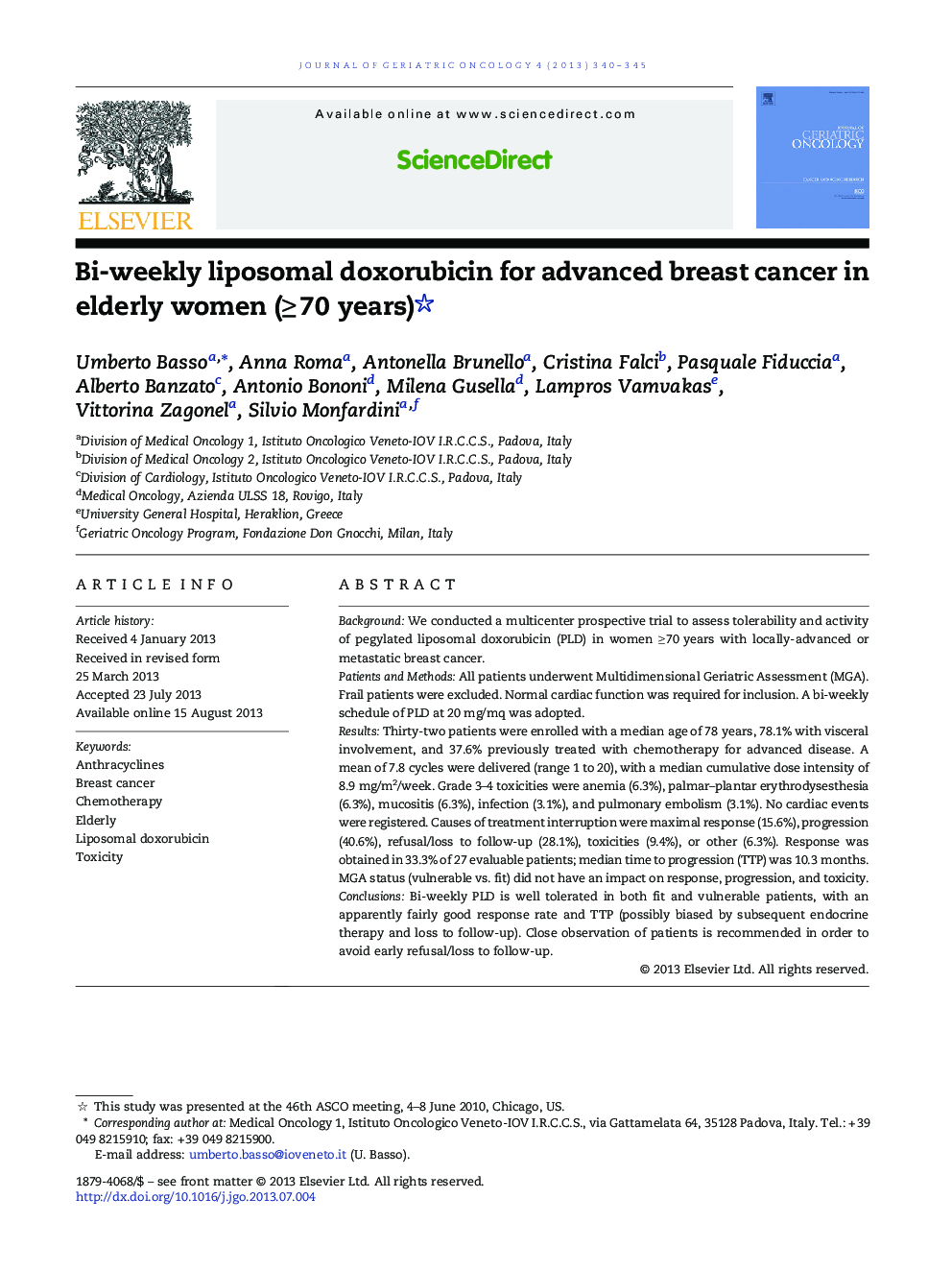| Article ID | Journal | Published Year | Pages | File Type |
|---|---|---|---|---|
| 1912869 | Journal of Geriatric Oncology | 2013 | 6 Pages |
BackgroundWe conducted a multicenter prospective trial to assess tolerability and activity of pegylated liposomal doxorubicin (PLD) in women ≥ 70 years with locally-advanced or metastatic breast cancer.Patients and MethodsAll patients underwent Multidimensional Geriatric Assessment (MGA). Frail patients were excluded. Normal cardiac function was required for inclusion. A bi-weekly schedule of PLD at 20 mg/mq was adopted.ResultsThirty-two patients were enrolled with a median age of 78 years, 78.1% with visceral involvement, and 37.6% previously treated with chemotherapy for advanced disease. A mean of 7.8 cycles were delivered (range 1 to 20), with a median cumulative dose intensity of 8.9 mg/m2/week. Grade 3–4 toxicities were anemia (6.3%), palmar–plantar erythrodysesthesia (6.3%), mucositis (6.3%), infection (3.1%), and pulmonary embolism (3.1%). No cardiac events were registered. Causes of treatment interruption were maximal response (15.6%), progression (40.6%), refusal/loss to follow-up (28.1%), toxicities (9.4%), or other (6.3%). Response was obtained in 33.3% of 27 evaluable patients; median time to progression (TTP) was 10.3 months. MGA status (vulnerable vs. fit) did not have an impact on response, progression, and toxicity.ConclusionsBi-weekly PLD is well tolerated in both fit and vulnerable patients, with an apparently fairly good response rate and TTP (possibly biased by subsequent endocrine therapy and loss to follow-up). Close observation of patients is recommended in order to avoid early refusal/loss to follow-up.
